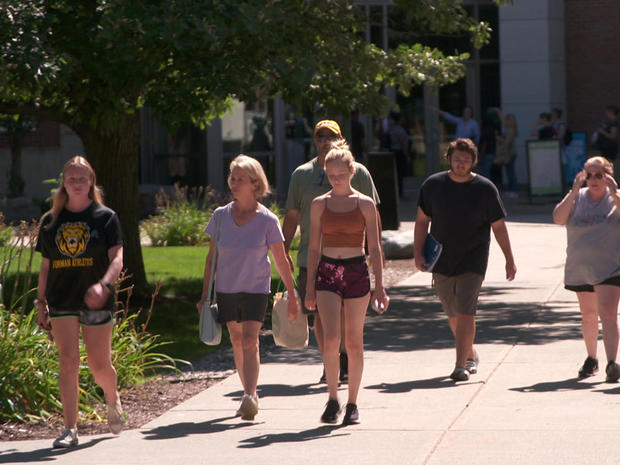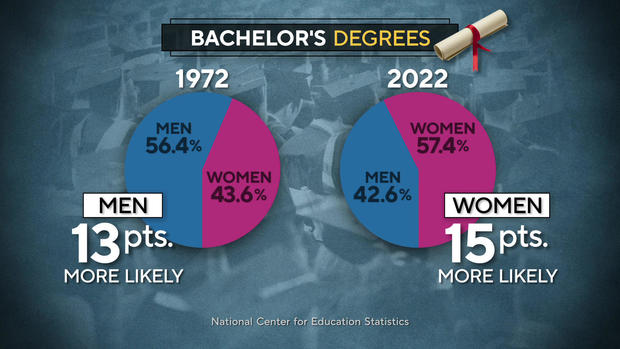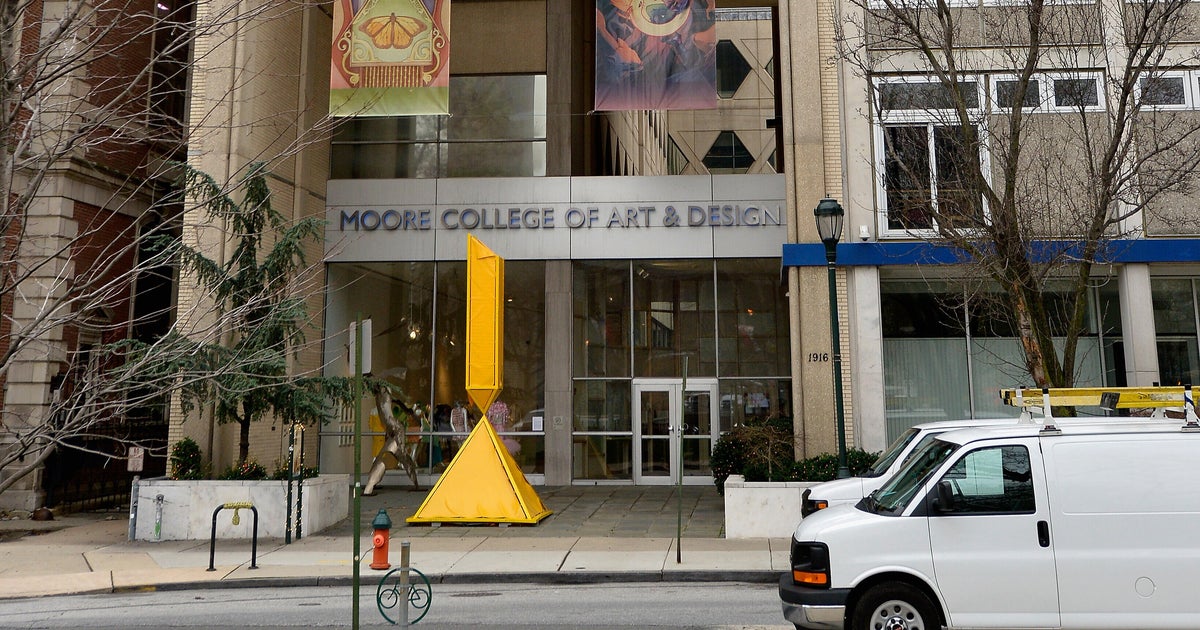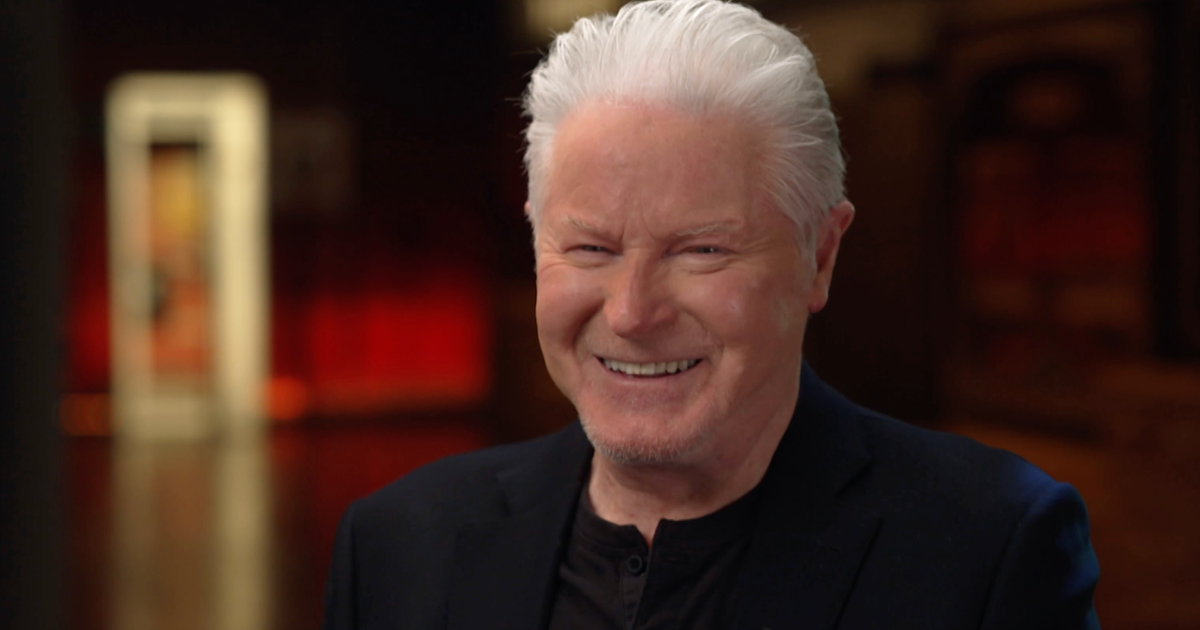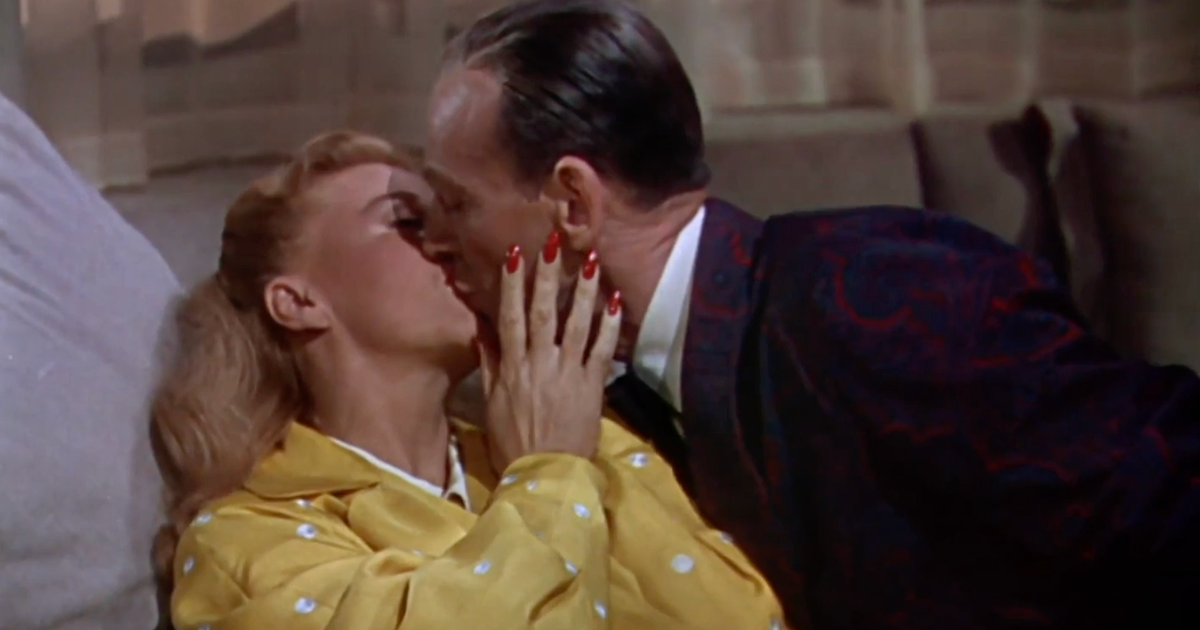How gender disparities are affecting men
At the University of Vermont not long ago, it was move-in day for the class of 2027. About a thousand incoming freshman were meeting their roommates, finding their dorm rooms, and getting settled on campus. At first glance one might have thought this was an all-women's college – 62% of this year's class are women, a gender gap that has earned Burlington, Vt., a nickname: Girlington.
"You see six or seven women for every three or four men," said UVM's vice provost for enrollment Jay Jacobs. His job is all about student diversity, and these days the male/female divide is now part of that equation. "Sure, I thought about racial and ethnic diversity," Jacobs said. "Sure, at a public flagship in the state of Vermont, I've thought about geographic diversity. Never gender diversity like that. That's where we are."
UVM is hardly an outlier. Nationwide, women make up almost 60% of college undergraduates.
In 1972, when Title IX was passed to help improve gender equality on campus, men were 13% more likely to get an undergraduate degree than women; today, according to the National Center for Education Statistics, it's women who are 15% more likely to get a degree than men.
"We have a bigger gender gap today than we did when we passed laws to help women and girls; it's just flipped," said Richard Reeves, a former Brookings Institution senior fellow. He says, no one really has been able to explain why so many men are so absent in higher education. What is known is the gender disparity starts as early as kindergarten, where girls are just generally the stronger sex in academics.
Reeves said, "If you look at high school GPA, and those who are getting the best grades in high school, two-thirds of them are girls. Those with the lowest grades, two-thirds of them are boys."
It's been theorized girls and women today are just fulfilling their destiny – that once the limitations on their achievements were lifted, they soared. Reeves, who's just launched the American Institute for Boys and Men, fears that things have changed so quickly, it's left many boys and men struggling to catch up, not just in the classroom, but at work and at home, too.
"What does it mean to be a successful man today? That was a question that was pretty easy to answer a generation or two ago," said Reeves. "But actually, what is the answer today? A lot of these guys just don't know."
In short, he says millions of boys and men don't understand how or where they fit anymore, and their reaction is to generally disconnect. According to the U.S. Bureau of Labor Statistics, men's participation in the labor market has dropped more than 7% in the last 50 years. According to the Centers for Disease Control and Prevention, 21% of men report binge drinking (almost double the rate of women), and men account for nearly 80% of suicide deaths (four times the rate for women).
Reeves said, "The two most commonly-used words by suicidal men to describe themselves were useless and worthless."
But even to suggest there's some kind of male crisis is perilous these days, said Reeves: "Merely raising it will cause people to eye roll, and say, 'Really? Ten thousand years of patriarchy, and now you're worried?'"
After all, women still earn only about 80 cents for every dollar earned by a man (according to Pew Research Center). Only a fraction (10.4%) of Fortune 500 CEOs are women. And women make up just a quarter (28%) of the members in Congress, and (so far) zero U.S. presidents.
Those numbers leave UVM students Sarah Wood and Maxine Flordeliza pretty skeptical that men are barely treading water. "I think it's very interesting that there is kind of a big fuss about – not a fuss, but it's a conversation that people are having," said Wood. "But I don't think it's necessarily a problem?"
"I think that just the fact that the playing field has been a bit more evened out, shouldn't be the reason as to why men don't really know where they fit," Flordeliza said.
"Sure, do we need to do more to encourage more women into politics and into board rooms? Yes," Reeves said. "But meanwhile, can I not see that one group is struggling here, and another group is struggling there? And if I can't do that, we're in really deep trouble."
And those in the most trouble, he says, are working class and African American boys and men.
Von Washington Jr., executive director of community relations with The Kalamazoo Promise in Michigan, said, "Before it used to be, you graduated high school, 'Goodbye, you're on your own.' A lot of people said, 'Hey, you're outta my house.' Or 'It's time for you to go.' But we're understanding now those supports need to continue."
The Kalamazoo Promise program offers high school graduates in Kalamazoo scholarships covering up to the entire cost of in-state college tuition. The impact? The number of Kalamazoo women getting a college degree has increased by about 45%. But the number of Kalamazoo men getting college degrees didn't budge.
"We're working with them, we're talking with them," said Washington. "We're trying to find out what is it that, even with this opportunity, you have some of the same challenges as someone in another community that doesn't have this opportunity."
One solution that seems to be working is making sure those men who are struggling have a place to freely admit they're struggling. Staffers with The Promise are tracking down those men still eligible for the scholarship, finding out why they never used it, and helping them get what they need to finally do it – like Daniel Jaffari. "I just started wandering around in life and doing random jobs, getting tired of doing random jobs," said Jaffari. "And now I'm here!"
He joined with dozens of other men at what the Promise was calling their Males of Promise event. Another participant was Denis Martin, who graduated high school six years ago. He said, had the Promise not tracked him down, he might not have realized he was ready for something more. "I feel like now I have the discipline to be in a five-year program or a four-year program," he said. "As a kid I feel like I was still bouncing off the walls, and my mind didn't know what exactly was out there."
Back at UVM, administrators have changed their marketing and communication strategies to reach out to men, especially those who might not think they want to go to college at all. The college is also hiring a diversity coordinator to focus specifically on helping men.
Jacobs said to Cowan, "The world is built for people like you and me to succeed, so why do we need to help men succeed here on our campus even more? But I think once people start to understand the nuances and challenges that we're talking about here today, people understand that all students need support."
UVM junior Lucas Roemer doesn't see it as a sort of affirmative action – putting the finger on the scale for men. He sees it as a way to help anyone who's been hanging on and feeling left out. "I think there's ways to promote both femininity and masculinity on campus equally well," he said. "I think there's definitely a path forward that could be beneficial to everybody."
The coordinator of the Men and Masculinities Program will be housed in the Women & Gender Equities Center – ironic to some. But it's also a recognition that men's problems can co-exist with those of women. "You lift the edges up, the center will be lifted up as well," said Jacobs. "And here, the edges include men."
It's the kind of reaction to the very real problems of boys and men that Richard Reeves says needs to be the rule, and not the exception: "This is not a made-up crisis of masculinity. This is an actual hard fact. There is real suffering here, and if we don't address real suffering, then what are we here for?"
For more info:
- "Of Boys and Men: Why the Modern Male Is Struggling, Why It Matters, and What to Do About It" by Richard V. Reeves (Brookings Institution Press), in Hardcover, eBook and Audio formats, available via Amazon, Barnes & Noble and Bookshop.org
- Richard Reeves on the American Institute for Boys and Men
- University of Vermont (UVM), Burlington, Vt.
- The Kalamazoo Promise, Kalamazoo, Michigan
Story produced by Mark Hudspeth. Editor: Mike Levine.

